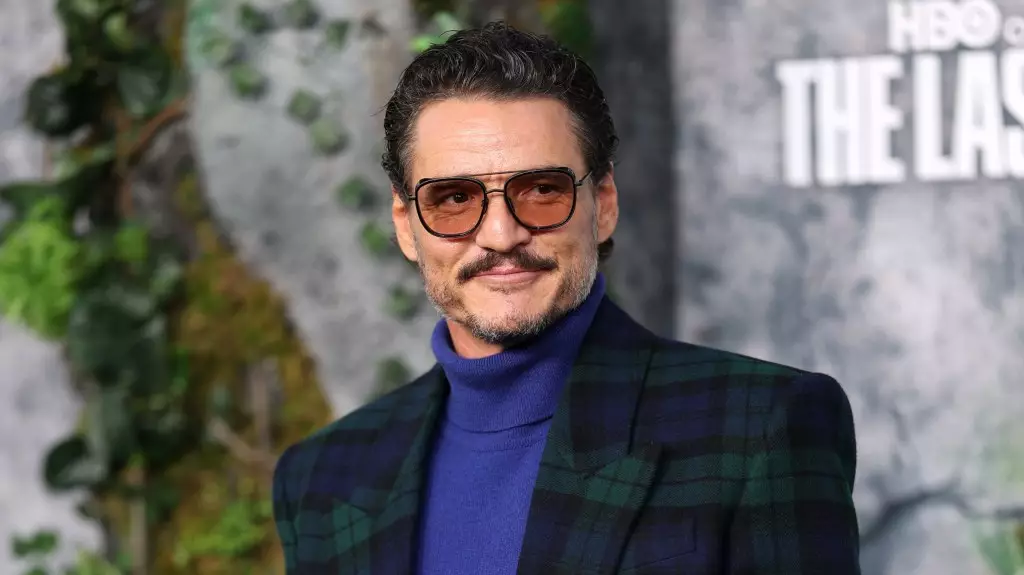Pedro Pascal, a luminary in the realm of genre entertainment, faces a uniquely daunting challenge with his latest role in *The Fantastic Four: First Steps*. Set to be unleashed in theaters on July 25, this film serves as a fresh entry into the long-trodden landscape of the Marvel Cinematic Universe (MCU). The intriguing premise places the beloved characters in a parallel universe, specifically a retrofuturistic 1960s setting. This bold artistic direction offers a canvas fraught with hurdles, as Pascal admits to the weight of expectations that accompany such an iconic legacy.
Pascal’s portrayal of Reed Richards, also known as Mister Fantastic, is layered with complexity. His fear of inadequacy is palpable, reflecting a sentiment that resonates deeply within our current cultural climate—how do we innovate while honoring tradition? When he expresses that he was “really intimidated,” it speaks to a broader anxiety that many creatives feel when they step into massive franchises. In an industry that is often driven by the profit motive, the challenge transcends mere performance; it revolves around the responsibility of reinvigorating characters that fans hold dear while aligning with contemporary standards of storytelling.
Reimagining Characters for Today’s Audience
Moreover, this film is not just about Pascal; it also challenges co-star Joseph Quinn, who takes on the role of Johnny Storm. Quinn highlights a vital transformation in character dynamics—a conscious effort to reshape how characters are perceived in today’s socio-cultural landscape. The previously womanizing persona popularized by Chris Evans in the 2005 iteration is now under scrutiny. Quinn’s anxieties—whether portraying a “callous” character still aligns with modern values—illustrate the complexities of navigating a world rife with diverse voices and messages. The stakes are high, and the recharacterization is not simply an artistic choice; it illustrates the moral evolution that society demands from its entertainers.
In discussions with figures like Kevin Feige, Quinn and the crew are held accountable not just to the legacy of their characters but to a dialogue around sensitivity and awareness in the modern age. By attempting to infuse self-awareness into Johnny’s motivations, the filmmakers are not merely entertaining—they’re also fostering a cultural conversation about male behavior and accountability. This is crucial in a time when media representation can either uplift or further entrench outdated stereotypes.
Embracing Fear to Create Something New
The fear that accompanies roles in high-stakes franchises like *The Fantastic Four* is not just a personal struggle for Pascal or Quinn; it encapsulates the haunting anxiety of an entire industry grappling with how to move forward without losing the essence of what makes a story resonate. The fusion of nostalgic elements with contemporary realities creates a fertile ground for innovation, yet it simultaneously challenges artists to balance respect with creativity.
Within this climate, Pascal’s reliance on a collaborative environment is perhaps the most hopeful takeaway. The notion that he “relied on the people” around him communicates a broader theme of community and support in creative industries. In a world so often pressing for individual greatness, this acknowledgment of collective effort is a breath of fresh air. It suggests that even amidst fear and uncertainty, the collaborative spirit can lead to remarkable outcomes in storytelling.
As audiences await this new chapter in the MCU saga, the question remains: Can *The Fantastic Four: First Steps* break free from the shackles of its predecessors, or will it fall prey to the same tropes that have plagued past adaptations? Only time will tell, but the journey of reinvention has already showcased invaluable lessons about accountability, innovation, and the essence of good storytelling.


Leave a Reply